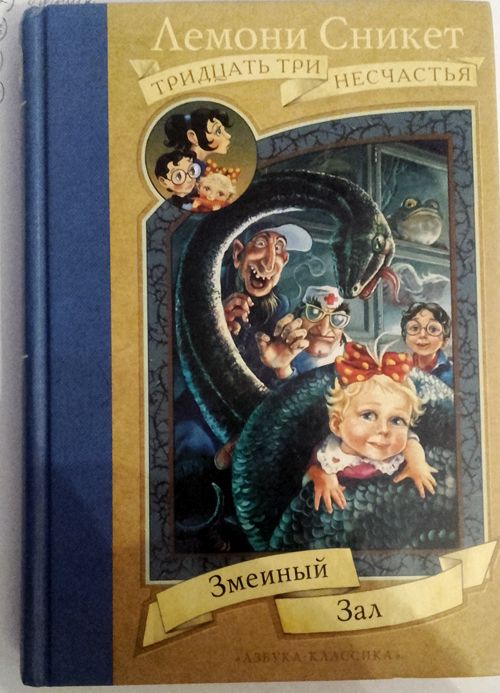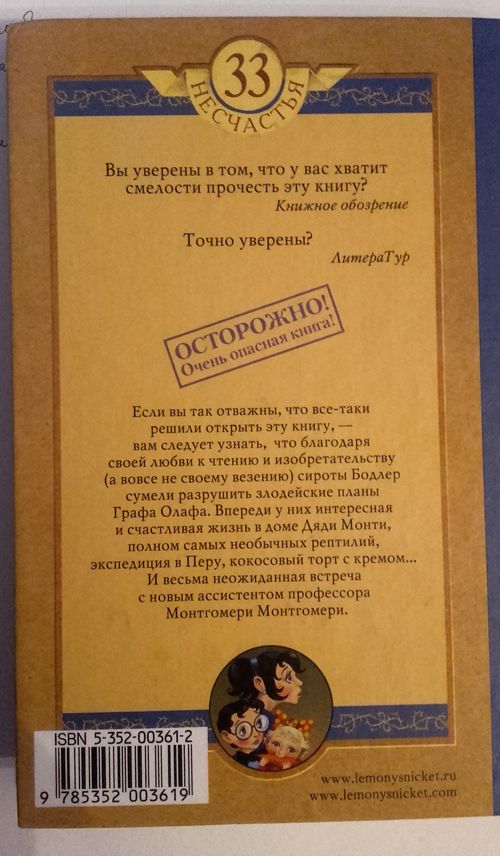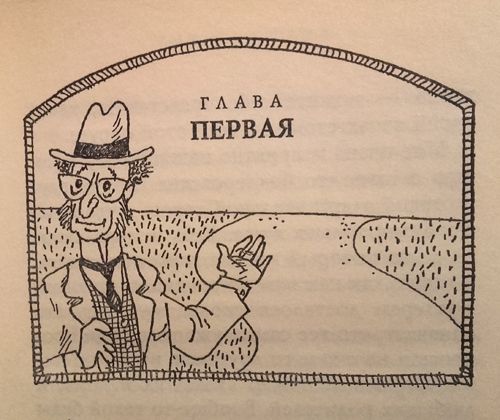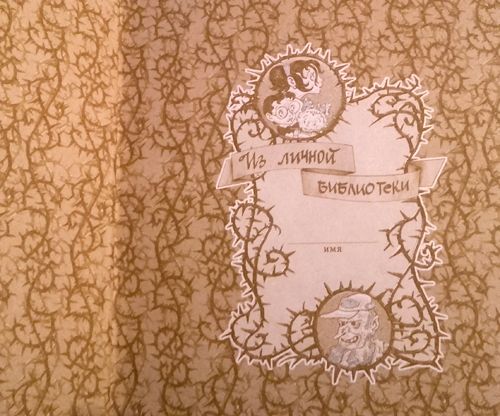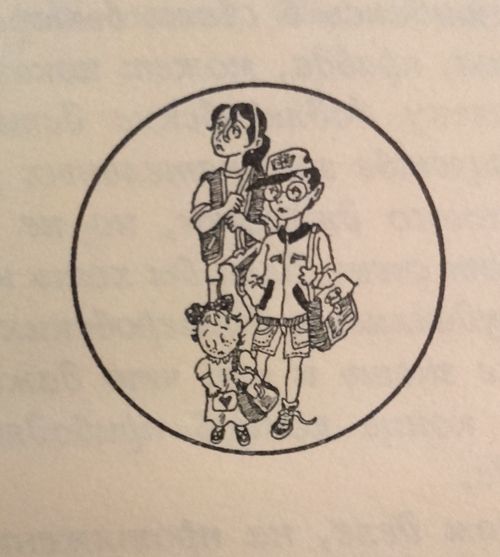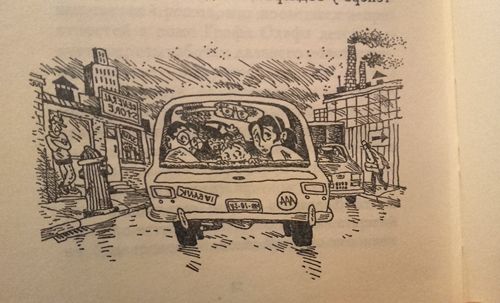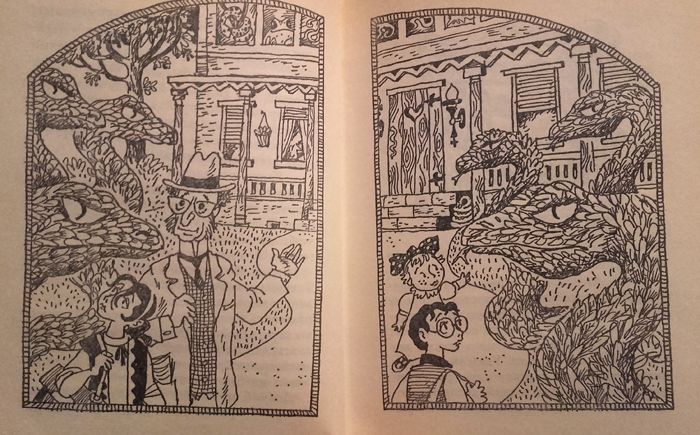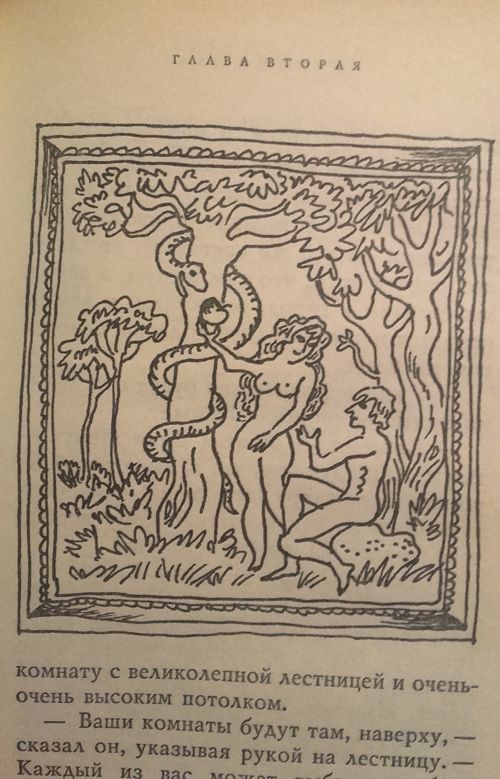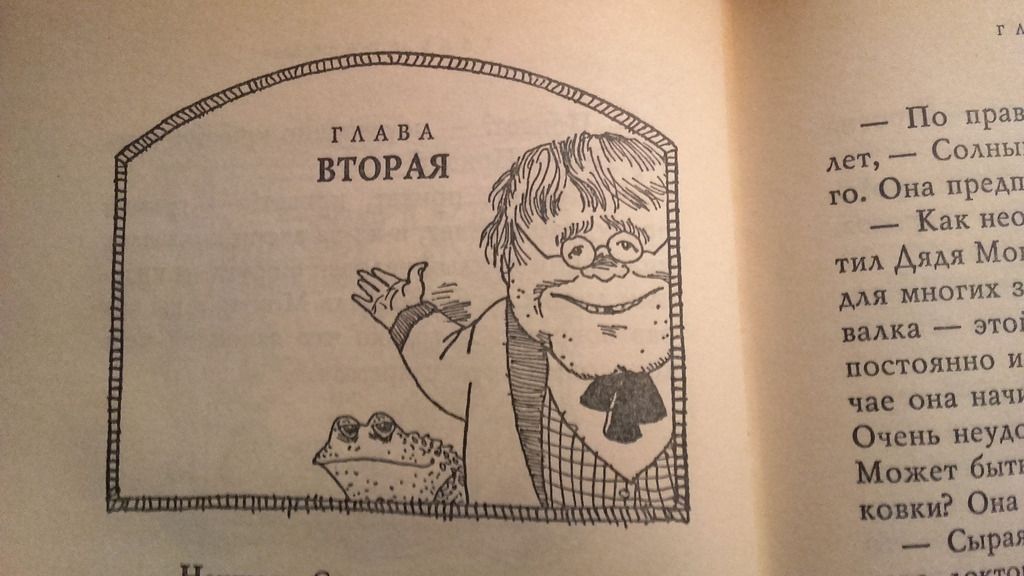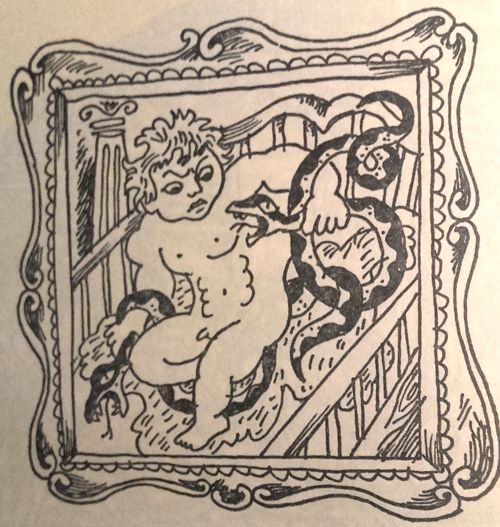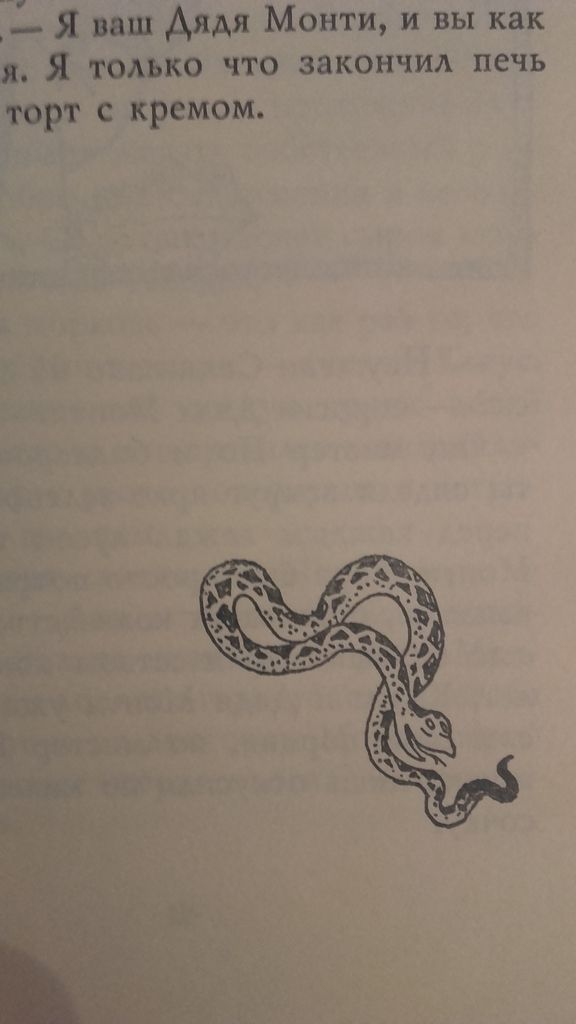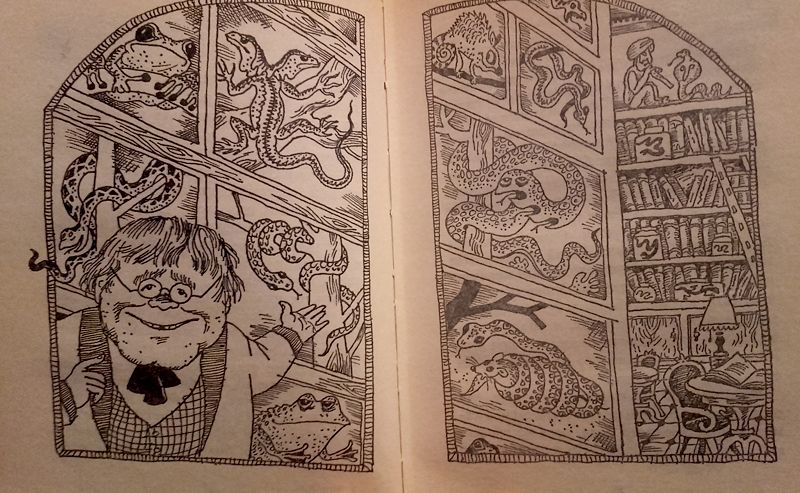|
|
Post by gliquey on Nov 26, 2016 10:22:02 GMT -5
Even if you weren't fooled by Dr. Lucafont, it becomes obvious pretty quickly that there's a pattern in the series, with one troupe member returning each book. TWW doesn't even bother to disguise its henchperson, though that would have been impossible anyway. With that said, there are factors in each book which make them worth discussing on an at least slightly more individual level; Dr. Lucafont is, to my recollection, comparatively convincing, while TWW doesn't attempt to convince; TMM brings in Dr. Orwell to muddy the waters; the white-faced women do basically nothing in TAA, while in TEE then not only does Esmé add an extra layer of deceit, the hook-handed man also fails to do much and even seems kind of out of the loop at times. The variations on the formula are small, but fascinating - at least, to me. It's still really odd that it's the troupe members who use anagrams of Olaf's name for their disguises, while Olaf borrows a literary allusion. And also that nobody (as in, Daniel Handler and Sue Rich) noticed the missing "O" in Lucafont, though THH fixes this error. I wonder what the Netflix series will do about names, considering that all the troupe members seem to be showing up in each book; just not give disguised names for most of them and have just one prominent returning troupe member whilst the others are more in the background, perhaps. TEE didn't give its returning troupe member a disguised name as he'd already had one and even the Baudelaires couldn't fail to make the connection, and while TVV has a sort of troupe member then she follows the allusion naming scheme rather than the anagram one. I'm aware that this is a TRR thread rather than a whole-series discussion, though, but in this aspect it's hard to separate the two as TRR is very important in establishing the aforementioned "formula" which is both consistent and consistently varied; that is, it's a formula, but the formula has lots of variables which can be switched one way or another. There's a new guardian - good, evil, clever, incompetent? There's a returning troupe member - how important, how antagonistic? I was thinking about this as I read TBB and ASOUE really is incredibly formulaic - not that I think this is a bad thing (especially as a child, it was a key reason I loved it, though maybe that means I'm a very boring person). I think of ASOUE in two separate halves: TBB to TVV follows almost exactly the same formula, and THH to TE still has these elements but they are not as important, or don't occur in the same way (for instance, the 'new guardian' element is a lot looser as people like Olivia or Widdershins are not really their guardian; Sunny advances from biting to cooking; sometimes it's the Baudelaires in disguise instead of Olaf). TBB actually started a lot of the "formula" elements (Beatrice dedication, Kind Editor letter, a type of library, new guardian etc.), but some things wouldn't have made sense in TBB, so it is in TRR where the formula is really solidified (such as Olaf and a henchperson in disguise). EDIT: I'm surprised Handler made the Lucafont mistake in the first place, but I'm not as surprised Rich failed to fix it. When we have discussions about foreign translations of the books on 667, one topic which often comes up is the failure of translators to notice anagrams (e.g. "Al Funcoot" in TBB), so even if Rich didn't even notice it was supposed to be an anagram, it's not the only time an anagram of "Count Olaf" has gone right over the head of someone involved in the publishing process. |
|
|
|
Post by mortinson51 on Nov 26, 2016 12:40:38 GMT -5
I'm hoing into the Biography now. But in that book where it reveals VFD elements in TRR. On of the key things is that Monty didn't notice the Selbald code in Zombies in the snow. Where in the TV show we have montyclearly getting it. I think this already changes a huge dinamic about monty's character. We will have to see but I feel like this TV version will be more useful.
As for the hidden troupe members. It will be interesting because as a veiwer we will be able to spot them right away so we will never have that element of surprise. So it will be interesting if the decide to make the kids able to see them.
|
|
|
|
Post by Dante on Nov 27, 2016 17:28:42 GMT -5
Wow, baudelaires, you have quite a journey ahead of you. Please keep us posted of your impressions!
|
|
|
|
Post by Esmé's meme is meh on Nov 27, 2016 18:41:50 GMT -5
(This is why I suggested to keep these threads free of spoilers!)
I'll read and join the discussion after I do my last exam on Wednesday. Sorry I'm not too present in my own posts.
|
|
larina
Reptile Researcher
 
Posts: 47 
Likes: 79
|
Post by larina on Dec 1, 2016 13:21:29 GMT -5
Began the reread today, at the moment I'm halfway through TRR.  Here’s my (probably overstuffed with not that interesting info) analysis of the Russian TRR translation, as well as some commentary on the book in general: 1) The name itself was changed to “Snake Hall” (Змеиный Зал) so that there would be an alliteration. Interestingly, the title of the first book/TBB (Скверное Начало) isn’t alliterate, unlike all the following books (The End, of course, being an exception). The translators probably noticed a pattern a little late but did fix their mistake. 2) Most of the location names, like Hazy Harbour and Lousy Lane, got translated without being really changed, so the alliterations are lost. 3) There are some subtler changes, to be honest I don’t really know why any of them were made. Maybe so it would fly off the tongue better. For example, in the original Monty says “Count Olaf sounds like an awful person. I hope he is torn apart by wild animals someday. Wouldn't that be satisfying?” While here it’s “Count Olaf sounds like an awful person. I hope he is torn apart by wild animals someday. Doesn’t he deserve that?” Also, when Monty tells them about his prank: Original: “Violet and Klaus looked at each other, and then began laughing, .... because they thought Uncle Monty's prank was a good one”. Translation: “Violet and Klaus looked at each other, and then began laughing, .... because Uncle Monty's joke amused them”. 4) The expression “dramatic irony” is nonexistent in Russian language, so it is replaced with a similar one that we use, “evil irony”. 5) All the reptile names are translated into Russian words instead of keeping the English pronounciation. 6) There is no equivalent to the word “giddy” in Russian, so “Giddy Uncle Monty” is replaced with “Zonked Uncle Monty”, which is pretty funny. Also, “excited” is translated into “взволнованный”, a word that in Russian language could both mean “excited” AND “nervous”, depending on the context. In general, the translation comes off as really awkward here, sounds like Monty is more nervous about the trip than he is excited. 7) I’m surprised they found a similar expression (лютый враг - fierce enemy) to the nonexistent in Russian word “nemesis” while describing Olaf’s relationship to the Baudelaires. *Nothing to do with the translation, but WOW, Olaf sure has one awful sense of humour. Also never realized that the Baudelaires were already considering living by themselves and getting jobs this early in the series. It’s as if they’re aware of what’s coming.  8) In this part “When somebody is a little bit wrong — say, when a waiter puts nonfat milk in your espresso macchiato, instead of lowfat milk....” “espresso macchiato” is changed to just “coffee”. Probably because espresso macchiato hadn’t yet arrived to Russia at the time the book was released, so nobody would recoginze the drink. * "If I wanted to harm you, orphan, your blood would already be pouring down these stairs like a waterfall.” That’s no Jim Carrey. Will NPH Olaf be like this though? 9) ”Zombies on the Snow” instead of “Zombies in the Snow”. * "However," Violet said, "if he harms us, there's no way he can get to our fortune. That's why he tried to marry me last time." "Thank God that didn't work," Klaus said, shivering. "Then Count Olaf would be my brother-in-law.” REALLY, Klaus? I mean I love you, but that's the thing that makes you the most concerned about Olaf marrying Violet?  10) “The word "dumbly" here means "without speaking," rather than "in a stupid way". This part feels a bit awkward in translation, cause the word used here (тупо) does ususually mean “dully” or “stupidly”, but isn’t used to describe someone not speaking, it’s kind of hard to explain. It does work, but still feels a bit weird. I think I'll get to uploading the illustrations next. |
|
|
|
Post by Dante on Dec 2, 2016 4:47:53 GMT -5
Very interesting notes, larina! I always find it fascinating to hear how translators have approached the series, and that goes especially for the Russian translations, as one of the few foreign-language versions to actually get all the way to the end of the series. It seems like most of the changes are just a matter of making the text read better in Russian, but others are more awkward; if the "dumbly" explanation no longer worked once translated, they should probably have replaced it with something else.
|
|
|
|
Post by Esmé's meme is meh on Dec 2, 2016 10:12:58 GMT -5
Great job, larina! The double meaning of "excited" fits, to me, with the series  I'll post some stuff from my Spanish translation as well today or tomorrow. In the meantime, some stuff I noticed in the English version: -Page 4: Mr. Poe has a new car that can barely fit the Baudelaires. Why would he buy a smaller car when he has two kids and a wife? Don't they go on vacations or what? -Page 10: I didn't remember Uncle Monty said "Hello hello hello" à la Olaf <3 the whole approaching to the house also reminds me of what we've seen already in the trailers. I wonder if they'll maintain it in the show: it would be an interest parallelism. -Page 16: Monty's reaction to Gustav's resignation intrigues me. Considering we know he was part of VFD, how is it possible he didn't suspect something weird has happened to him? -Page 20: His reaction when Klaus mentions Olaf is weird too. I think it's canon he met Olaf when they were young, isn't it? His "I hope he's torn apart by wild animals someday. Wouldn't that be satisfying?" comment reflects that somehow haha. -Page 33: since the kids were less than ten days with Uncle Monty, I wonder if they'll do the same for the show. If I recall correctly, in the movie they only spent a day or two with him. -Page 36: "And before too long, the Baudelaire orphans were telling Uncle Monty all about their own lives [...] Uncle Monty was interested in the Baudelaires' stories as they were in his". Seems like Monty wasn't supposed to be too important when the second book was written, otherwise he'd have told the kids SOMETHING about their parents and VFD, or at least mention he met them. Since Monty's role in the Netflix show seems to be different, I wonder if they'll take advantage of this opportunity. -Page 40: I'm curious about what they'll do with the taxi scene in the show. Since it's almost certain the driver is a VFD member (the taxi driver disguise includes pictures of babies), I wonder if they'll go further and make him be Lemony Snicket. It'd be a really nice scene. -Page 41: Another repetition here. The "How do you do" sequence reminded me of the one in TBB, when Poe approaches the kids at Briny Beach. In both occasions, it was to bring them some awful news. |
|
|
|
Post by gliquey on Dec 2, 2016 11:25:15 GMT -5
3) There are some subtler changes, to be honest I don’t really know why any of them were made. Maybe so it would fly off the tongue better. For example, in the original Monty says “Count Olaf sounds like an awful person. I hope he is torn apart by wild animals someday. Wouldn't that be satisfying?” While here it’s “Count Olaf sounds like an awful person. I hope he is torn apart by wild animals someday. Doesn’t he deserve that?” That's an interesting difference. When I re-read the "Wouldn't that be satisfying?" line, I almost laughed out loud, but the "Doesn't he deserve that?" line sounds alarmingly sinister to me, although I don't know whether it would have that same tone in Russian. This was something I noted down while I was re-reading. In TBB we have Klaus saying "I would rather take my chances on the streets than live in this terrible place" (p.58); in TRR they talk about running away and getting jobs; and in TMM, yet again they talk about this when Violet says "We could run away" (p.103). But although they keep bringing up the subject, it's not until they really have no other choice in TVV that they actually consider it for more than a second. -Page 4: Mr. Poe has a new car that can barely fit the Baudelaires. Because otherwise there wouldn't be the carpooling conundrum later in the book.  I was also going to point this line out - I've never really noticed before, but him talking about coming back in a week with their clothes, and Snicket saying his car is small, is almost foreshadowing / an instance of Chekhov's Gun. It's similar to Violet's left-handedness in the opening pages of TBB: something is mentioned very early that is important to Count Olaf's plans being ruined. |
|
larina
Reptile Researcher
 
Posts: 47 
Likes: 79
|
Post by larina on Dec 2, 2016 14:33:43 GMT -5
Very interesting notes, larina! I always find it fascinating to hear how translators have approached the series, and that goes especially for the Russian translations, as one of the few foreign-language versions to actually get all the way to the end of the series. It seems like most of the changes are just a matter of making the text read better in Russian, but others are more awkward; if the "dumbly" explanation no longer worked once translated, they should probably have replaced it with something else. I agree, they could've just used "numbly" instead of "without speaking", that would make more sense. 3) There are some subtler changes, to be honest I don’t really know why any of them were made. Maybe so it would fly off the tongue better. For example, in the original Monty says “Count Olaf sounds like an awful person. I hope he is torn apart by wild animals someday. Wouldn't that be satisfying?” While here it’s “Count Olaf sounds like an awful person. I hope he is torn apart by wild animals someday. Doesn’t he deserve that?” That's an interesting difference. When I re-read the "Wouldn't that be satisfying?" line, I almost laughed out loud, but the "Doesn't he deserve that?" line sounds alarmingly sinister to me, although I don't know whether it would have that same tone in Russian. Weirdly enough, "Wouldn't that be satisfying?" was what sounded oddly sinister to me (and was probably the reason for the change). It's interesting how the same text can have different tone in a different language. I took pictures of the Russian TRR illustrations, should I post them here or in the "Illustrations" thread? Or maybe create a separate thread for them? Help me out. |
|
|
|
Post by Dante on Dec 2, 2016 15:10:31 GMT -5
I was also going to point this line out - I've never really noticed before, but him talking about coming back in a week with their clothes, and Snicket saying his car is small, is almost foreshadowing / an instance of Chekhov's Gun. It's similar to Violet's left-handedness in the opening pages of TBB: something is mentioned very early that is important to Count Olaf's plans being ruined. One of my main recollections of my last rereading of TBB is that Violet's hand dominance is mentioned far more often than you'd think; it also comes up in the grappling hook scene, and at the end of Chapter Eleven. I took pictures of the Russian TRR illustrations, should I post them here or in the "Illustrations" thread? Or maybe create a separate thread for them? Help me out. Either or both of those threads sounds appropriate to me. I think a "reread" can reasonably include a re-examination of the illustrations. |
|
|
|
Post by Esmé's meme is meh on Dec 2, 2016 15:14:21 GMT -5
"Stephano was holding a knife under the table, rubbing the blade gently against Violet's knee for the entire meal"
Wow I didn't remember that and I think I was happier not remembering it.
|
|
larina
Reptile Researcher
 
Posts: 47 
Likes: 79
|
Post by larina on Dec 2, 2016 16:02:06 GMT -5
|
|
|
|
Post by Dante on Dec 2, 2016 16:36:14 GMT -5
It's unusual to see the city looking so modern - and the Baudelaires' clothes, too. (Edit: "Modern" is perhaps not the right word, but I'm not quite sure how to put my finger on exactly what I mean. Ordinary, perhaps, without obvious attempt to imitate another era.) But the monochrome sells it somehow. And I respect the attempt to recreate the Ex Libris pages in the illustrator's own style.
|
|
larina
Reptile Researcher
 
Posts: 47 
Likes: 79
|
Post by larina on Dec 2, 2016 16:58:05 GMT -5
It's unusual to see the city looking so modern - and the Baudelaires' clothes, too. (Edit: "Modern" is perhaps not the right word, but I'm not quite sure how to put my finger on exactly what I mean. Ordinary, perhaps, without obvious attempt to imitate another era.) But the monochrome sells it somehow. And I respect the attempt to recreate the Ex Libris pages in the illustrator's own style. Nice observation about the time period! I used to be always weirded out when this series was called "victorian", "a period piece", etc. The movie confused me too by how gothic and old-fashioned everything looked. Well, until I saw Helquist illustrations at least. Shows how much of an impact an illustrator can make on the way the series is percieved. |
|
|
|
Post by Invisible on Dec 2, 2016 17:39:39 GMT -5
Uncle Monty looks like a potato. XD
|
|









 Here’s my (probably overstuffed with not that interesting info) analysis of the Russian TRR translation, as well as some commentary on the book in general:
Here’s my (probably overstuffed with not that interesting info) analysis of the Russian TRR translation, as well as some commentary on the book in general:


